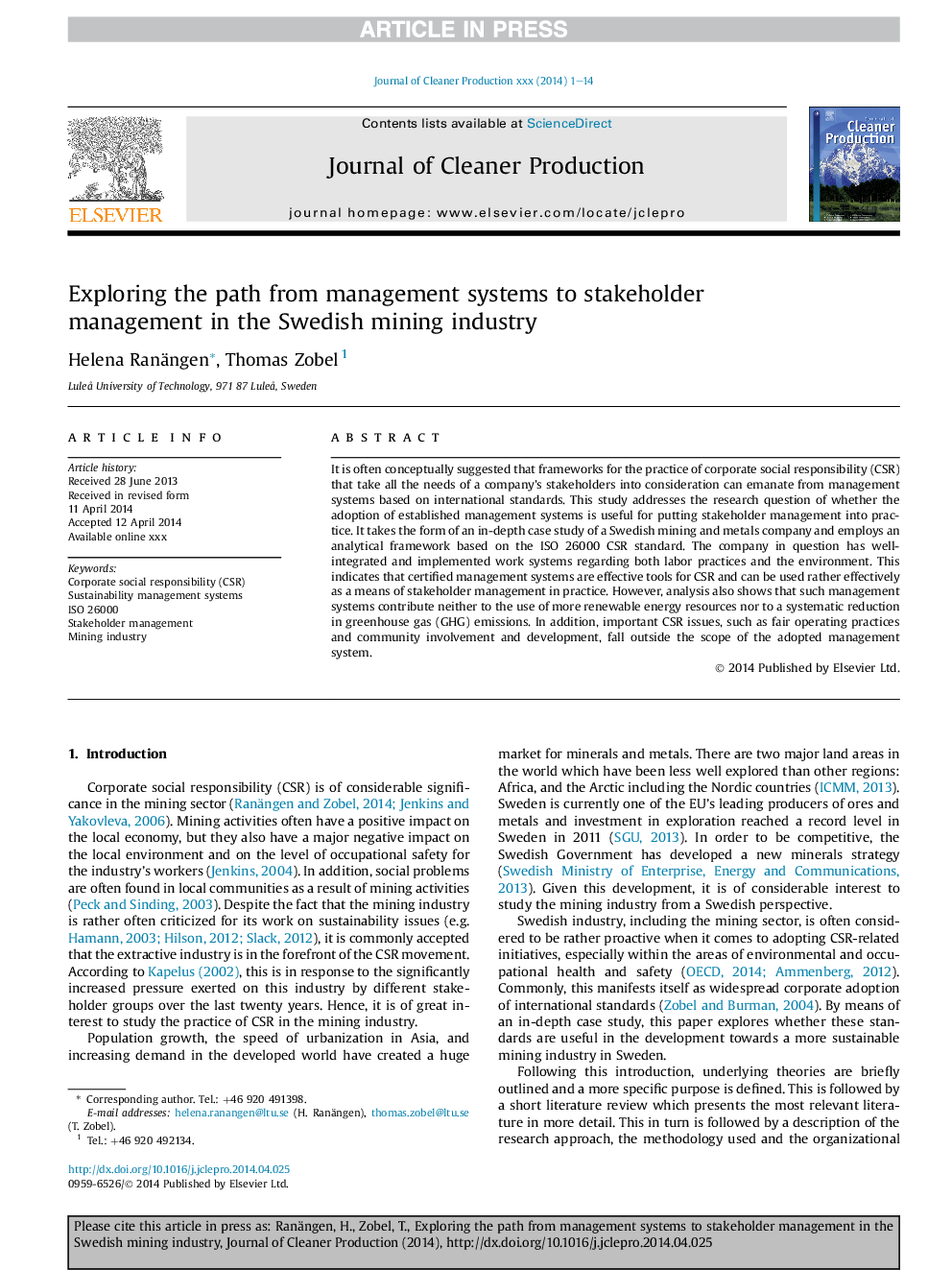| Article ID | Journal | Published Year | Pages | File Type |
|---|---|---|---|---|
| 8105356 | Journal of Cleaner Production | 2014 | 14 Pages |
Abstract
It is often conceptually suggested that frameworks for the practice of corporate social responsibility (CSR) that take all the needs of a company's stakeholders into consideration can emanate from management systems based on international standards. This study addresses the research question of whether the adoption of established management systems is useful for putting stakeholder management into practice. It takes the form of an in-depth case study of a Swedish mining and metals company and employs an analytical framework based on the ISO 26000 CSR standard. The company in question has well-integrated and implemented work systems regarding both labor practices and the environment. This indicates that certified management systems are effective tools for CSR and can be used rather effectively as a means of stakeholder management in practice. However, analysis also shows that such management systems contribute neither to the use of more renewable energy resources nor to a systematic reduction in greenhouse gas (GHG) emissions. In addition, important CSR issues, such as fair operating practices and community involvement and development, fall outside the scope of the adopted management system.
Related Topics
Physical Sciences and Engineering
Energy
Renewable Energy, Sustainability and the Environment
Authors
Helena Ranängen, Thomas Zobel,
